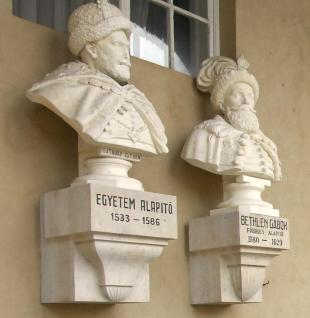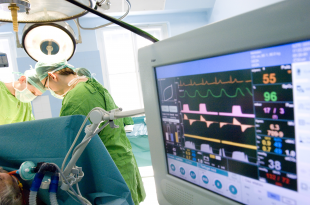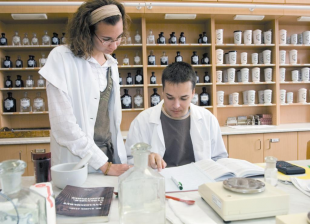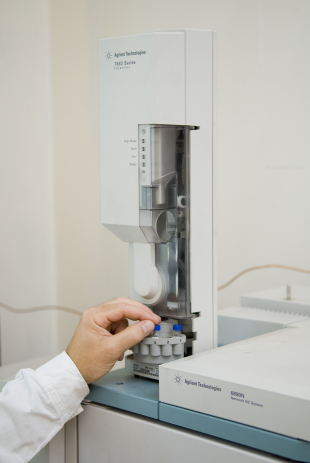Doctoral Schools of the University of Szeged
-
Doctoral schools of Faculty of Arts
Partner institutes -
Doctoral schools of Faculty of Economics and Business Administration
Partner institutes - Doctoral schools of Faculty of Law and Political Sciences
-
Doctoral schools of Faculty of Medicine
Partner institutes -
Doctoral schools of Faculty of Pharmacy
Partner institutes -
Doctoral schools of Faculty of Science and Informatics
Partner institutes
Faculty of Arts
Educational sciences show the most dynamic progress among social sciences, primarily because knowledge has become the dominant factor of economic competitiveness and social development in recent decades, in a process in which the reproduction of knowledge attracts growing attention. In the most advanced regions of the world, resources, infrastructure and human capital allocated for research on learning and instruction are increasing. The dynamic progress creates a need for experts in research on learning and instruction in Europe as well.
Click here to see the thesis proposals.

The Doctoral School of History held the title of “Place of Excellence” from 2006 for three years.
Click here to see the thesis proposals.
Educational Programmes: Altaic Studies, English Applied Linguistics, French Linguistics, German Linguistics, Hungarian Linguistics, Russian Linguistics, Slavic Historical Linguistics, Theoretical Linguistics, Uralic Studies
Click here to see the thesis proposals.
The School was founded in 1994, by Professor Lajos Csetri, Department of Classical Hungarian Literature. Integrating contemporary Hungarian and international trends, Professor Csetri erected the School on the finest traditions of literary scholarship in Szeged. The diverse theoretical traditions have been engaded in a productive cooperation within the organisational framework of the School ever since.
Click here to see the thesis proposals.
The School was founded in 2007 by Professor Dezső Csejtei, Department of Philosophy. Our program is an integral development of nearly a century’s tradition of philosophical research at the University of Szeged with its focus on the history of Continental philosophy from the Greeks to 20th century currents of philosophy such as hermeneutics and phenomenology.
Click here to see the thesis proposals.
Partner institutes
- Institute for Literary Studies, Hungarian Academy of Sciences
- Research Institute for Linguistics, Hungarian Academy of Sciences
- Institute of History, Hungarian Academy of Sciences
- University of Pécs
- Universiteit Utrecht
Faculty of Economics and Business Administration
 Due to specialisation and optional classes, students can select the subjects and fields of research (workshops) as the training field of their PhD education that best fit their individual research topics and habits. The PhD School operates the following research workshops.
Due to specialisation and optional classes, students can select the subjects and fields of research (workshops) as the training field of their PhD education that best fit their individual research topics and habits. The PhD School operates the following research workshops.
Click here to see the thesis proposals.
Partner institutes
- Centre for Economic and Regional Studies of the Hungarian Academy of Sciences
- Financial Research Plc.
Faculty of Law and Political Sciences

Our doctoral school aims to give the opportunity for graduate students to deepen their knowledge in legal research methodology and to gain more experience in the theoretical background and the practical issues according to their special professional interests. The education in the Doctoral School consists of two parts: uniform lectures throughout 4+4 semesters and research work conducted by the students’ advisor at the host department. The best experts of our faculty and visiting professors from abroad hold the lectures and the advisory sessions.
Click here to see the thesis proposals.
Faculty of Medicine
 Biological Research Center of the Hungarian Academy of Sciences Institute of Biochemistry; Biological Research Center of the Hungarian Academy of Sciences Institute of Biophysics; Biological Research Center of the Hungarian Academy of Sciences Institute of Genetics; Biological Research Center of the Hungarian Academy of Sciences Institute of Plant Biology; Bay Zoltán Foundation for Applied Research Institute for Plant Genomics Human Biotechnology and Bioenergy.
Biological Research Center of the Hungarian Academy of Sciences Institute of Biochemistry; Biological Research Center of the Hungarian Academy of Sciences Institute of Biophysics; Biological Research Center of the Hungarian Academy of Sciences Institute of Genetics; Biological Research Center of the Hungarian Academy of Sciences Institute of Plant Biology; Bay Zoltán Foundation for Applied Research Institute for Plant Genomics Human Biotechnology and Bioenergy.
Click here to see the thesis proposals.
The School offers a PhD program to graduate students and focuses its research and training on the role of health-threatening microorganisms and dangerous environmental effects. Both epidemiologic and experimental studies are necessary to identify physical and chemical effects that cause health problems. The courses of the Medical Microbiology and Preventive Medicine programs are combined in this Doctoral School and offer a wide variety of research.
Click here to see the thesis proposals.
The program is dedicated to providing high quality educational and research opportunities for young scientists. The program offers a PhD course in Neuroscience to students having graduated from medical universities or faculties of natural sciences.
Click here to see the thesis proposals.
Partner institutes
- Biological Research Centre, Szeged, Hungarian Academy of Sciences
- National Institute of Oncology
- National Center for Epidemiology
- University of Liverpool
Faculty of Pharmacy
 The especially advanced possibilities of complex pharmaceutical research are offered at the Faculty of Pharmacy at the University of Szeged since its different institutes represent the whole area of pharmaceutical research from the synthesis or isolation of biologically active compounds through their pharmacological or biopharmaceutical investigations to their formulation.
The especially advanced possibilities of complex pharmaceutical research are offered at the Faculty of Pharmacy at the University of Szeged since its different institutes represent the whole area of pharmaceutical research from the synthesis or isolation of biologically active compounds through their pharmacological or biopharmaceutical investigations to their formulation.
Click here to see the thesis proposals.
Partner institutes
Back to top
Faculty of Science and Informatics
PhD in Biology is a six to eight semester program depending on the advance of the research project selected by the student. Students are required to take a limited number of classroom courses, but their main activity is doing research in a team.
Click here to see the thesis proposals.
 Chemistry PhD is a six-semester program that involves, on one hand, taking some graduate-level, highly personalised courses and, on the other hand, conducting research in various areas of chemistry or at the boundaries of chemistry, e.g., with biology, materials science, environmental sciences, etc.
Chemistry PhD is a six-semester program that involves, on one hand, taking some graduate-level, highly personalised courses and, on the other hand, conducting research in various areas of chemistry or at the boundaries of chemistry, e.g., with biology, materials science, environmental sciences, etc.
Click here to see the thesis proposals.
Environmental education and research at the University of Szeged has long‑standing and internationally acknowledged traditions. The regular education in environmental sciences at the graduate and postgraduate levels has been started at the early years of the last decade.
Click here to see the thesis proposals.
Geography education and research have a long and internationally acknowledged tradition at the University of Szeged. The Doctoral School offers a broad range of research topics and courses. The Doctoral School ensures the appropriate infrastructural background for the work of the students: well-equipped laboratories with state-of-the-art laboratory and field equipment and IT facilities. The Institute of Geography and Geology is committed to high standards of research, and the research fields are continuously evolving in response to new challenges in the subject. Educational Programmes of the Doctoral School: Human Geography, Geomorphology, Geology, Geoinformatics and Geooecology.
Click here to see the thesis proposals.
The Doctoral School of Physics was established in 1994, based on four traditional research fields of physics at the University of Szeged: atomic physics, optics and laser physics, solid state physics and biophysics.
Click here to see the thesis proposals.

Mathematical education and research at the Bolyai (Mathematical) Institute of the University goes back to Frigyes Riesz and Alfréd Haar, 1921. These two world famous masters of mathematical analysis founded “Acta Scientiarum Mathematicarum (Szeged)” in 1922, the first mathematical journal in foreign language in Hungary. The “Acta” played and continues to play a crucial role in the circumstance that the Library of Bolyai Institute offers more than 250 current mathematical journals, almost 20 thousand books and more than 20 thousand volumes of journals to professors, researchers and students. Today the Bolyai Institute consists of six chairs: Algebra and Number Theory, Analysis, Applied and Numerical Mathematics, Geometry, Set Theory and Mathematical Logic, Stochastics. The Institute has 50 academic staff members with a wide range of research interests.
The doctoral education in the Bolyai Institute started in 1993. Between 2002 and 2008, the School consisted of two educational programmes: mathematics and informatics. The school reached its present form in 2009.
Click here to see the thesis proposals.
Systemic education in computer sciences was launched within the Mathematical Institute by László Kalmár in 1957. The first major computer science programme started in 1963. An important date in the history of computer science at the University of Szeged is 1967, when the Department of Computer Science was established. The first head of the department was László Kalmár.
Click here to see the thesis proposals.
Partner institutes
- Biological Research Centre, Szeged, Hungarian Academy of Sciences
- Wigner Research Centre for Physics, Hungarian Academy of Sciences
- Research Institute of Chemistry, Hungarian Academy of Sciences
- Institute for Geological and Geochemical Research, Hungarian Academy of Sciences
- Bay Zoltán Nonprofit Ltd. for Applied Research
- Cereal Research Non-Profit Ltd.
- University of Liverpool


